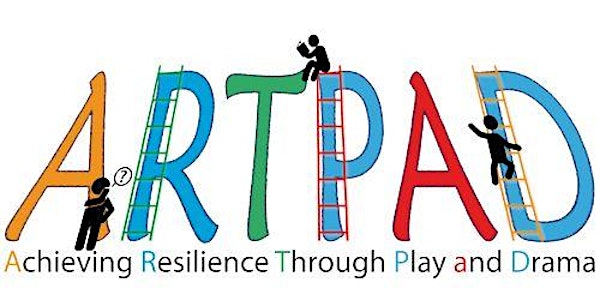
Achieving Resilience Through Play and Drama
Date and time
Location
The Growth Hub (Download Room)
University of Gloucestershire Oxstalls Campus Gloucester GL2 9HW United KingdomDescription
The ARTPAD projects aims to tackle the problem of early school leaving by Achieving Resilience Through Play and Drama.
The event will introduce the newly developed Best Practice Guide for teachers and youth workers that was developed within the ARTPAD project, through the active collaboration of the partnership, and is a result of a year long research process. The methods introduced are intended to have an impact on the well-being of children and young people, developing a mind-set that helps them to face adversity and overcome challenges – resulting in greater engagement in learning.
The aim of the project through the Best Practice Guide and subsequent training is to highlight the importance of introducing drama and play in institutional programs. It is intended to support practitioners, teachers who want to learn about the possibilities and impact of drama and play on the development of themselves as teachers and the development of the children they teach.
During the first year of the project, the partnership has visited several organisations and institutions, best practices, in the five partner countries (Austria, Poland, Hungary, Germany and the United Kingdom), who work with play and/or drama methods with children and young people. The visited organisations - schools, youth centres, professionals, NGO-s, and more - all covered different aspects of play and drama. Through these visits, the partnership was able to conclude what are the core elements of these practices, what are the factors that ‘make them work’. These elements then were turned into central principles, fundamental suggestions for practices to consider when building up their program. These principles are the heart of this guide and the event, summarising all the experiences the partnership has gained throughout the research.
Using drama techniques and play for learning is not a new or even recent idea. There are examples within early Jesuit education of using play as a tool for learning. Comenius, a Czech philosopher from the 1500’s, emphasized the importance of demonstration, and promoted the use of drama and play in order to support learning. During his work in Sárospatak in Hungary, he wrote down this idea in Schola Ludus (“Playful school” 1654). Other philosophers, including Rousseau, also recognised the importance of inner motivation, freedom and spontaneity within a child. Froebel too believed in a holistic approach to education built on ‘first-hand experience, collective play, talk and reflection’. Thus throughout history drama and theatre have been used to inform, educate and stimulate learning, whilst play is the natural activity of humans and higher brained mammals.
This event will provide you with an insight in to what has been learned so far and presented in the Best Practice Guide and will be an opportunity to find out about the up and coming training and development opportunities and how you might get involved both on an individual level or if you are fact finding on behalf of your School, Youth Setting or Academy.
Find out more about the project here www.artpadproject.eu